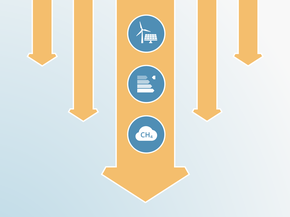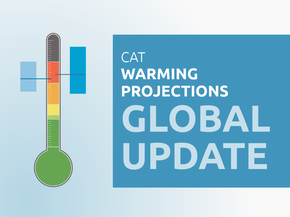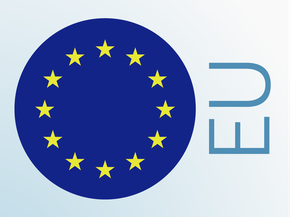Sources
References
- APERC (2019) APEC Energy Demand and Supply Outlook – 7th edition (Vol II). Tokyo, Japan: Asia Pacific Energy Research Centre, The Institute of Energy Economics, Japan. Available at: http://aperc.ieej.or.jp/file/2010/9/24/Outlook_Volume_II_4E.pdf.
- Bang-Hyun, K. and Kim, S. (2021) ‘Planting 3 billion trees: Carbon neutrality pitch or logging campaign?’, Korea JoongAng Daily, 17 May. Available at: https://koreajoongangdaily.joins.com/2021/05/17/national/socialAffairs/Korea-Forest-Service-forestation-tree-planting/20210517190500477.html.
- Climate Analytics (2020) Transitioning towards a zero-carbon society : science-based emissions reduction pathways for South Korea under the Paris Agreement. Berlin, Germany: Climate Analytics.
- Ganti, G. et al. (2021) Assessing the health benefits of a Paris-aligned coal phase out for South Korea. Available at: https://climateanalytics.org/publications/2021/assessing-the-health-benefits-of-a-paris-aligned-coal-phase-out-for-south-korea/.
- Gütschow, J., Günther, A. and Pflüger, M. (2021) ‘The PRIMAP-hist national historical emissions time series v2.3 (1750-2019)’. doi: 10.5281/zenodo.5175154.
- Hong, J. H. et al. (2019) ‘Long-term energy strategy scenarios for South Korea: Transition to a sustainable energy system’, Energy Policy, 127, pp. 425–437. doi: 10.1016/j.enpol.2018.11.055.
- ICAP (2019) Korea Emissions Trading Scheme. Last update: 29 October 2019. International Carbon Action Partnership. Available at: https://icapcarbonaction.com/en/?option=com_etsmap&task=export&format=pdf&layout=list&systems%5B%5D=47 (Accessed: 3 November 2019).
- ICCT (2019) Passenger car CO2 emissions and fuel consumption, normalized to NEDC. Updated June 2019. International Council on Clean Transportation. Available at: https://theicct.org/sites/default/files/NEDC_CO2_car_Jun2019.pdf (Accessed: 3 November 2019).
- IEA (2019) World Energy Balances (2019 edition). Paris, France: International Energy Agency.
- IEA (2020) World Energy Outlook 2020 . Available at: https://www.iea.org/reports/world-energy-outlook-2020 (Accessed: 16 October 2020).
- IEA (2021a) CO2 Emissions from Fuel Combustion - 2021 Edition. Available at: https://www.iea.org/data-and-statistics/data-product/co2-emissions-from-fuel-combustion.
- IEA (2021b) World Energy Balances 2021. Paris, France: International Energy Agency.
- IMF (2021a) World Economic Outlook (July 2021). Available at: https://www.imf.org/en/Publications/WEO/Issues/2021/07/27/world-economic-outlook-update-july-2021.
- IMF (2021b) ‘World Economic Outlook Update: April 2021’. Available at: https://www.imf.org/external/datamapper/datasets/WEO.
- International Carbon Action Partnership (ICAP) (2021) ‘EU Emissions Trading System (EU ETS)’. Available at: https://icapcarbonaction.com/en/?option=com_etsmap&task=export&format=pdf&layout=list&systems%5B%5D=43.
- IPCC (2018) IPCC Special Report on the impacts of global warming of 1.5°C. IPCC. Available at: https://www.ipcc.ch/sr15/.
- Jee-Hee, K. (2021) ‘[ROAD TO 2050] How Korea’s banks plan to kick the coal habit’. Korea JoongAng Daily. Available at: https://koreajoongangdaily.joins.com/2021/05/02/business/finance/carbon-neutrality/20210502180500432.html.
- Keramidas, K. et al. (2018) Global Energy and Climate Outlook 2018: Sectoral mitigation options towards a low-emissions economy – Global context to the EU strategy for long-term greenhouse gas emissions reduction. Luxembourg: Publications Office of the European Union. doi: 10.2760/67475.
- KFEM (2021) KFEM Held a Press Conference to Condemn the South Korea Forest Service’s “Carbon-Neutral” Logging Policy on Earth Day. Available at: http://kfem.or.kr/?p=215700 (Accessed: 30 August 2021).
- Korea New and Renewable Energy Center (2019) Supply Obligations (RPS). In Korean. Korea New and Renewable Energy Center. Available at: https://www.knrec.or.kr/business/rps_guide.aspx (Accessed: 3 November 2019).
- Lee, K. (2021) ‘South Korea’s 9th Basic Plan for electricity – a step closer to carbon neutrality?’ Wood Mackenzie. Available at: https://www.woodmac.com/our-expertise/focus/Power--Renewables/south-koreas-9th-basic-plan-for-electricity--a-step-closer-to-carbon-neutrality/.
- Macdonald, S. (2021) ‘South Korea’s Climate Pledges: Less than Meets the Eye’, The Diplomat, 5 May. Available at: https://thediplomat.com/2021/05/south-koreas-climate-pledges-less-than-meets-the-eye/.
- Min-hee, J. (2021) ‘Gearing up for Carbon Neutrality: Steelmakers Adopt Joint Statement for Carbon Emissions Reduction’. Available at: http://www.businesskorea.co.kr/news/articleView.html?idxno=59780.
- Ministry of Economy and Finance (2020) ‘Government Announces Overview of Korean New Deal’. Available at: https://english.moef.go.kr/pc/selectTbPressCenterDtl.do?boardCd=N0001&seq=4940.
- Ministry of Environment (2018) National Greenhouse Gas Reduction Target by 2030: Amended baseline roadmap roadmap for achieving achievement. Seoul, Republic of Korea: Ministry of Environment, Republic of Korea. Available at: http://energytransitionkorea.org/sites/default/files/2018-11/18.072030-온실가스-감축로드맵-수정안관계부처-합동 %281%29.pdf.
- Ministry of Environment (2020) ‘3rd planning period (2021-2025) national emissions allocation plan’. Available at: http://www.me.go.kr/home/web/board/read.do?pagerOffset=0&maxPageItems=10&maxIndexPages=10&searchKey=&searchValue=&menuId=286&orgCd=&boardId=1401250&boardMasterId=1&boardCategoryId=&decorator=.
- Ministry of Environment (2021) (Reference) 2050 Carbon Neutrality Framework Act passed by the National Assembly to legislate economic and social transformation towards carbon neutrality (In Korean: (참고)2050 탄소중립을 향한 경제·사회 전환 법제화 탄소중립기본법 국회 통과), Republic of Korea. Available at: https://www.me.go.kr/home/web/board/read.do?boardMasterId=1&boardId=1473295&menuId=286 (Accessed: 6 September 2021).
- Ministry of Foreign Affairs of South Korea (2021) Participation in methane reduction efforts to respond to the global climate crisis. Available at: https://www.mofa.go.kr/www/brd/m_4080/view.do?seq=371687&srchFr=&srchTo=&srchWord=&srchTp=&multi_itm_seq=0&itm_seq_1=0&itm_seq_2=0&company_cd=&company_nm=&page=1 (Accessed: 1 November 2021).
- Ministry of Oceans and Fisheries (2021) ‘“2030 Greenship-K Promotion Strategy” to Dominate the Global Green Ship Market’. Available at: https://www.mof.go.kr/en/board.do?menuIdx=1491&bbsIdx=31054.
- MOTIE (2017) Announcement of the 8th Basic Electricity Supply and Demand Plan (2017-2031). Ministry of Trade, Industry and Energy Announcement 2017-611. In Korean. Ministry of Trade, Industry and Energy, Republic of Korea. Available at: http://www.motie.go.kr/motie/ne/announce2/bbs/bbsView.do?bbs_cd_n=6&biz_anc_yn_c=Y&bbs_seq_n=64603 (Accessed: 12 April 2018).
- MOTIE (2019a) 3rd Energy Master Plan (‘제3차 에너지기본계획’). In Korean. Seoul, Republic of Korea: Ministry of Trade, Energy and Industry, Republic of Korea. Available at: http://www.motie.go.kr/common/download.do?fid=bbs&bbs_cd_n=81&bbs_seq_n=161753&file_seq_n=1.
- MOTIE (2019b) Hydrogen Economy Roadmap of Korea. Seoul, Republic of Korea: Ministry of Trade, Energy and Industry, Republic of Korea. Available at: http://www.motie.go.kr/common/download.do?fid=bbs&bbs_cd_n=81&bbs_seq_n=161262&file_seq_n=2.
- MOTIE (2020) ‘9th Basic Plan for Electricity Supply (2020-2034)’. Available at: https://www.motie.go.kr/motie/ne/presse/press2/bbs/bbsView.do?bbs_seq_n=163670&bbs_cd_n=81.
- OECD (2020) Real GDP long-term forecast - OECD database, Source: OECD Economic Outlook: Statistics and Projections: Long-term baseline projections, No. 103. Available at: https://data.oecd.org/gdp/real-gdp-long-term-forecast.htm#indicator-chart (Accessed: 15 April 2020).
- OICA (2019) 2018 production statistics. International Organization of Motor Vehicle Manufacturers. Available at: http://www.oica.net/category/production-statistics/2018-statistics/ (Accessed: 3 November 2019).
- Le Quéré, C. et al. (2020) Supplementary data to: Le Quéré et al (2020), Temporary reduction in daily global CO2 emissions during the COVID-19 forced confinement (Version 1.2). Global Carbon Project. Available at: https://doi.org/10.18160/RQDW-BTJU (Accessed: 11 December 2020).
- Republic of Korea (2012) Korea’s Third National Communication under the United Nations Framework Convention on Climate Change. Low Carbon, Green Growth. Republic of Korea. Available at: http://unfccc.int/resource/docs/natc/kornc3.pdf.
- Republic of Korea (2016) Submission by the Republic of Korea: Intended Nationally Determined Contribution. UNFCCC. Available at: https://www4.unfccc.int/sites/ndcstaging/PublishedDocuments/Republic of Korea First/INDC Submission by the Republic of Korea on June 30.pdf.
- Republic of Korea (2020a) ‘2019 National Greenhouse Gas Inventory (1990-2017) Report (NIR)’. Available at: http://www.gir.go.kr/home/board/read.do?pagerOffset=0&maxPageItems=10&maxIndexPages=10&searchKey=&searchValue=&menuId=36&boardId=49&boardMasterId=2&boardCategoryId=.
- Republic of Korea (2020b) ‘2050 Carbon Neutral Strategy of the Republic of Korea: Towards a sustainable and green society’. UNFCCC. Available at: https://unfccc.int/sites/default/files/resource/LTS1_RKorea.pdf.
- Republic of Korea (2021a) 2030 National Greenhouse Gas Reduction Goals (NDC). Available at: https://www.korea.kr/common/download.do?fileId=196125969&tblKey=GMN.
- Republic of Korea (2021b) 2050 Carbon Neutral Scenario. Available at: https://www.mofa.go.kr/www/brd/m_4080/down.do?brd_id=235&seq=371662&data_tp=A&file_seq=4.
- Republic of Korea (2021c) 2050 탄소중립 달성을 위한 산림부문 추진전략(안) (Forest sector promotion strategy to achieve 2050 carbon neutrality (draft)). Available at: https://www.korea.kr/news/policyBriefingView.do?newsId=156432842 (Accessed: 30 August 2021).
- SFOC (2021) ‘S. Korea mulls exceptions to overseas coal financing moratorium’. Available at: http://forourclimate.org/sub/news/view.html?idx=61&curpage=1.
- Transportpolicy.net (2019) South Korea: Light-duty: fuel economy and GHG. International Council on Clean Transportation, DieselNet. Available at: https://www.transportpolicy.net/standard/south-korea-light-duty-fuel-economy-and-ghg/ (Accessed: 3 November 2019).
- US EIA (U.S. Energy Information Administration) (2020) ‘Country Analysis Executive Summary: South Korea’. Available at: https://www.eia.gov/international/content/analysis/countries_long/South_Korea/south_korea.pdf.
- US EPA (2019) Global non-CO2 Greenhouse Gas Emission Projections & Mitigation. Washington, DC, US.
- Wang, Ye, Liu, S. and Wang, Yan (2021) ‘South Korea and Japan Will End Overseas Coal Financing. Will China Catch Up?’ World Resources Institute. Available at: https://www.wri.org/insights/south-korea-and-japan-will-end-overseas-coal-financing-will-china-catch.
- Wood Mackenzie (2019) News release: South Korea could miss 2030 renewables target. 27 March 2019. Wood Mackenzie. Available at: https://www.woodmac.com/press-releases/south-korea-could-miss-2030-renewables-target/ (Accessed: 3 November 2019).
- Zimmer, A. et al. (2021) Employment opportunities from a coal-to-renewables transition in South Korea. Available at: https://climateanalytics.org/publications/2021/employment-opportunities-from-a-coal-to-renewables-transition-in-south-korea/.
Further analysis
Latest publications
Stay informed
Subscribe to our newsletter




